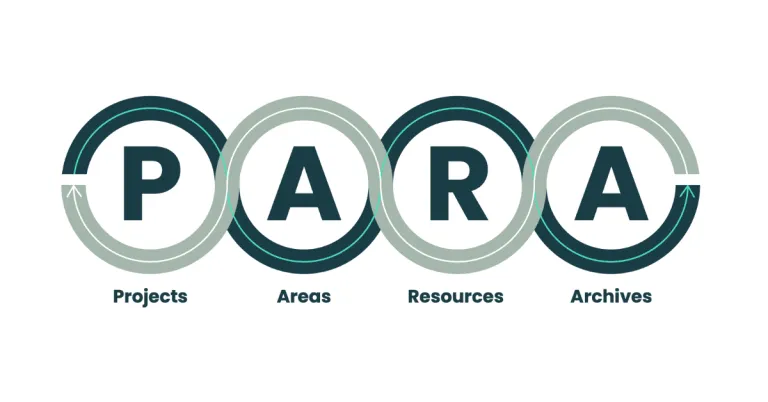Building a Second Brain

The books I have the most fun reading are books that I can apply to my personal life as well as work. And this absolutely hits both. Building a Second Brain (BASB) by Tiago Forte, basically outlines a method primarily for note-taking (and thus file management), or generally speaking a term I hadn't heard of prior to reading the book: Personal Knowledge Management (PKM). The BASB framework supports you whether you're planning a family trip, or brainstorming a content strategy for next quarter.
It's been both a:
- Fun theoretical examination of the best way to manage D A T A in the InFoRmAtiOn AGE.
- And a practical guide of how to write, organize, and maintain notes (and files and tasks) to execute quickly.
I never read classic PKM books like Getting things Done, but this seems to acknowledge those, and build upon them.
What I'm good at
I know enough about myself that I need to write almost everything down or else that conversation or idea is going to evaporate from existence in minutes. So I'm good at taking notes during a meeting, or having an idea while falling asleep, and grabbing my phone and writing it down.
What problem I was looking to solve
But I have also learned that I rely on search too much. For every 100 notes I create, 99 of them disappear in to the endless stream of notes sorted by date created. I'm sure there are at least a handful of decent ideas that will never see the light of day because I don't have a framework to ensure I'm doing something with my notes.
This book brought exactly what I was hoping for: Both the clarity in a framework of note-taking, and a method to the madness of managing notes (and files), because it acknowledges that there is a madness when it comes to data management, because well, life itself is a bit mad.
It's simple enough for a noisy brain like mine to follow, but still very specific about best practices for maintaining and managing your personal data. Here are few highlights that resonated with me. It's one of those frameworks in life where once you learn it, you can't unlearn it, and now my notes app, task app, and computer folders are all organized using his PARA method, which makes organizing my second brain brilliantly simple.
Big Picture Highlights
- Instead of taking notes, you are really giving notes to your future self. You are a curator.
- In content, value is not easily distributed. (Importance of bolding and highlighting your notes, or Progressive Summarization, as he calls it.) P.67
- Great analogy for how most of us organize notes: Imagine how absurd it would be to organize a kitchen instead by kind of food: fresh fruit, dried fruit, fruit juice, and frozen fruit would all be stored in the same place, just because they all happen to be made of fruit. Yet this is exactly the way most people organize their files and notes keeping all their book notes together just because they happen to come from books, or all their saved quotes together just because they happen to be quotes.
- Instead of organizing ideas according to where they come from, I recommend organizing them according to where they are going-specifically, the outcomes that they can help you realize. P.104
- Progressive Summarization is not a method for remembering as much as possible-- it is a method for forgetting as much as possible. P.137
- Standardize the way you work because we only really improve when we standardize the way we do something. To get stronger, you need to lift weights using the correct form. A musician relies on standardized notes and time signatures so they don't have to reinvent the basics from scratch every time. P.177
Tactical Highlights
- When reviewing existing notes: Campsite rule: leave a note better than you found it. P.139
- Highlight 10-20% of what you bolded. P.138
If you haven't subscribed yet, and you've gotten this far, you totally should. (It's all free, you just get these into your inbox.) If you have any questions or tips about your own PKM, I'd love to hear from you! Shoot me an email, Twitter, etc.